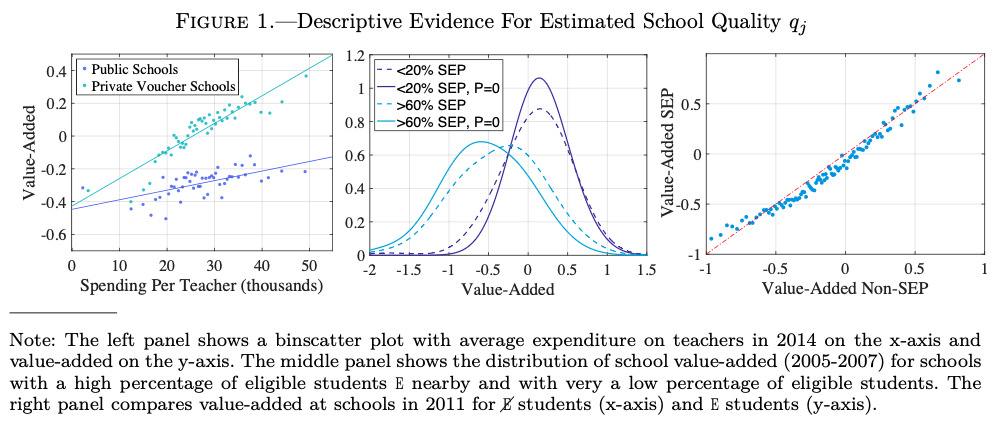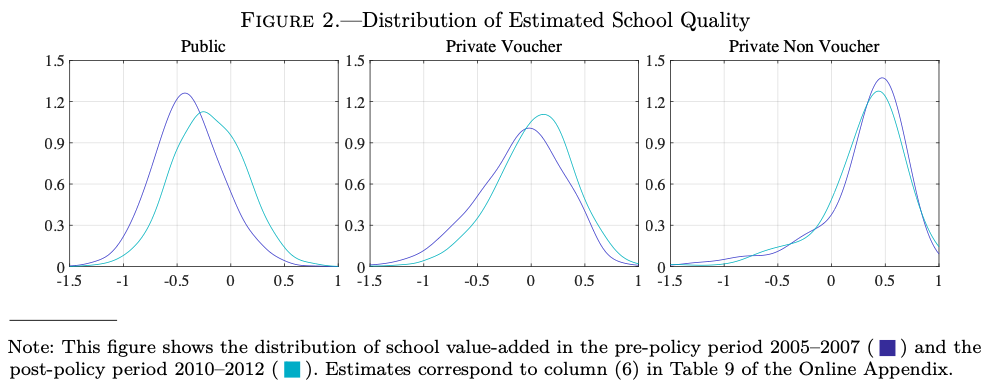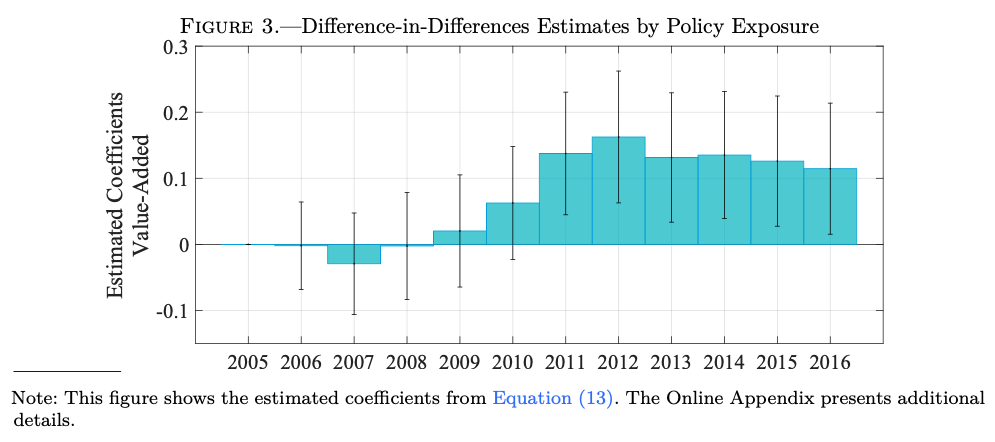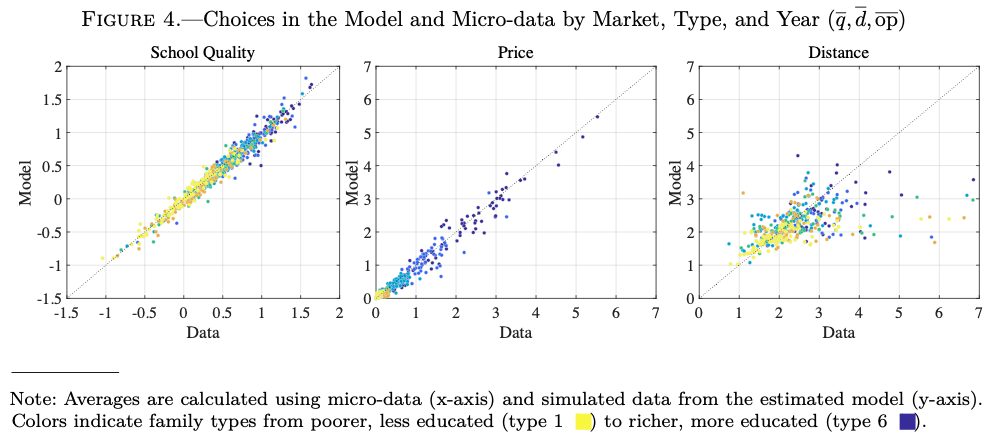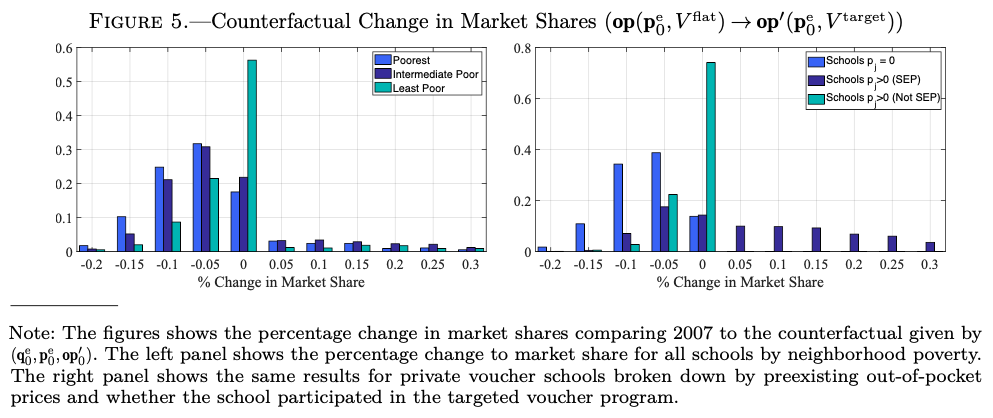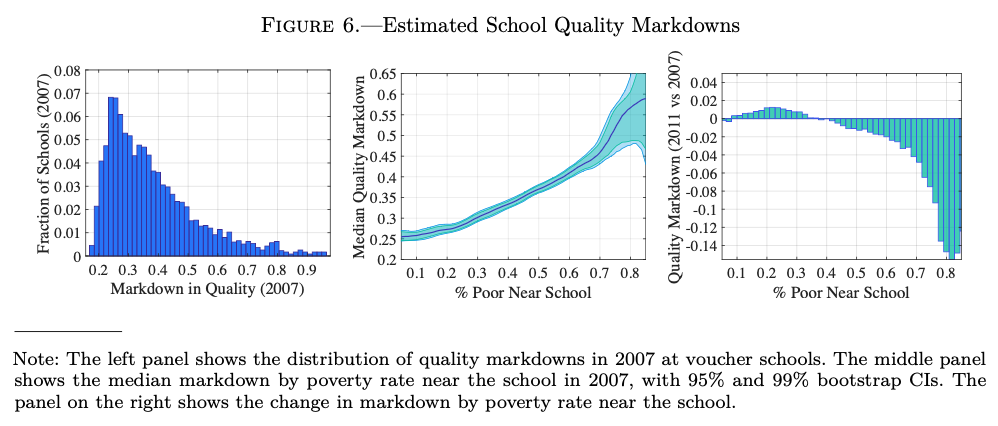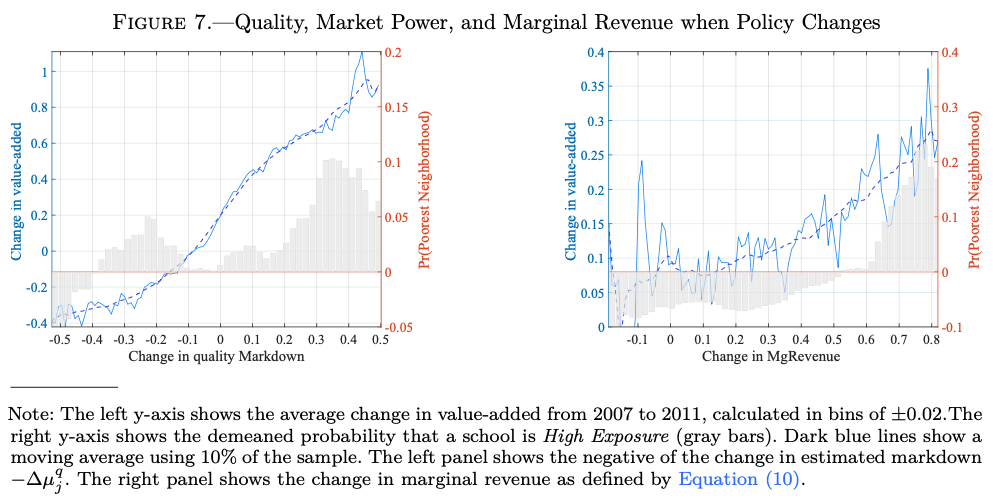Targeted Vouchers, Competition Among Schools and the Academic Achievement of Poor Students
Abstract
I develop a model of supply and demand with imperfect competition to study the primary education market in Chile. I use this framework to analyze how voucher policy affects incentives for schools to supply quality. First, I provide evidence that introducing a voucher targeted at poorer students led schools to improve quality. Next, I estimate demand and use the estimates to quantify the mechanisms that incentivized for-profit schools to improve. My estimates indicate that under a flat voucher system, schools leverage market power to reduce quality below the competitive benchmark, particularly in the poorerest neighborhoods where competitive incentives are weakest. My results indicate the introduction of a targeted voucher policy reduced schools' market power and increased marginal revenue, improving observed school quality. These findings provide evidence that targeted vouchers enhanced academic achievement and equity by increasing resources for schools and intensifying competition where it was previously lacking.
Current Working Paper (under review at Econometrica)
Most Current Working Paper - April 2025
Most Current Online Appendix - April 2025
Supplements to Online Appendix
Supplement on Defining Schooling Markets - May 2021
Supplement on School Spending - May 2021
Supplement on School Income - May 2021
Supplement on School Value Added - May 2021
Supplement on Voucher Rules - May 2021
Code Repository
The code used to estimate the model using simulated data is available on GitHub.
Graphs From the Paper
- Published: Econometrica (Conditionally Accepted)
- Date: 2025
